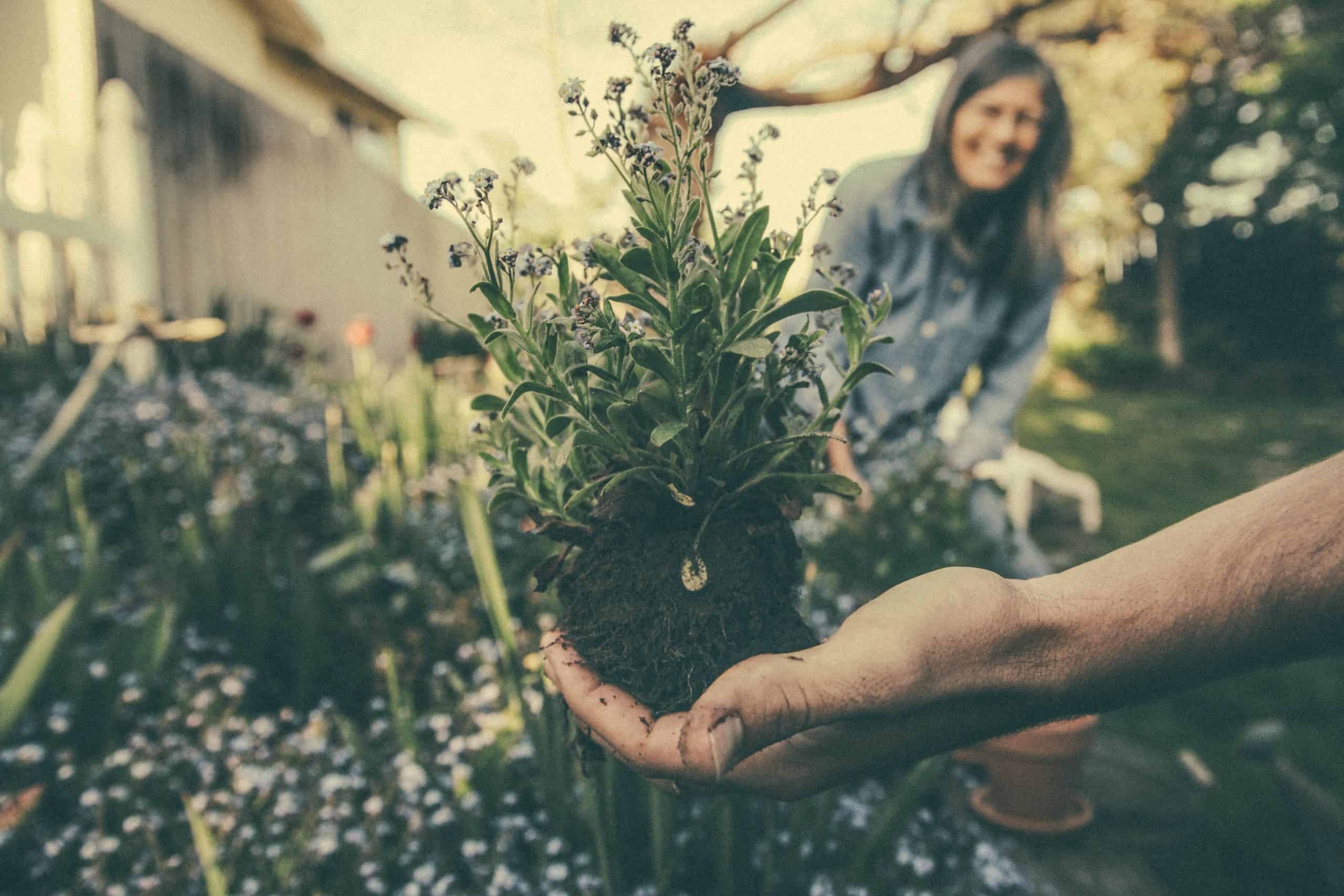Last night, as I sat at dinner, one of the guys I live with talked about his experiences at a nearby hospital, a place off the table for us to volunteer. Not being able to serve is deflating. What remains? Online ministry, sure, tutoring and accompaniment. And while these ways of helping out are good and necessary, I long for immediate, unmitigated contact with a community, be it a food pantry, a social service center, or a school.
How providential, then, was this grace the other week? I found myself in the community garden here at Loyola University Chicago, where students and Jesuit scholastics volunteer. We harvest the crops and donate them to a local food pantry, I was told, and the idea of helping out appealed to me. When the morning came, however, I didn’t want to go. My bed was too comfortable to get out of. I had a paper to begin writing. I could use the time to get ahead on my readings. Someone else would take care of the garden. The list of excuses continued to tell me that it would be okay to skip out.
Nevertheless, something mysterious was attracting me to the garden, and I found myself walking between rows of tomato vines and running my hand down the silky milkweed. I lugged the garden hose across the neighbor’s lawn to hook it up to the spigot. I marveled, in horror, at how quickly my clean sneakers could become encrusted with mulch. Then the work began; I enjoyed watering as I watched the dry dirt become dark and rich, greedily drinking up each drop of moisture. I watched the water fall from my sprayer and land like raindrops upon the leaves of kale and tomatoes.
All creatures look to you to give them their food at the proper time, the psalmist writes in psalm 104. When you give it to them, they gather it up; when you open your hand, they are satisfied with good things.
We are needy beings, us humans; we have that in common with plants. As I continued to give the plants what I needed, I began meditating on the Arabic word Rab, which is often translated to “Lord” in religious texts. However, Rab has this additional meaning of “Sustainer, Cherisher, Nourisher.”
It is a powerful and simple notion. God is the Nourisher, who sustains us by his very Being, and in my simple action of watering the tomatoes and the peppers and the Black-eyed Susans I was participating in that. God was quite active through me, as I nourished the plants with this gift of water. But this gift would extend beyond the moment, a half-hour period of watering. Someone else would harvest the plants; after that, they would bring those crops to the food pantry. Others still would enjoy the sweetness of a melon or the heat of a pepper and be nourished.
In his book “How to Eat,” Thich Nhat Hanh writes this meditation:
With just a little bit of mindfulness you can truly see where your bread comes from. It has not come from nothing. Bread comes from the wheat fields, from hard work, and from the baker, the supplier, and the seller. But the bread is more than that. The wheat field needs clouds and sunshine. So in the slice of bread there is sunshine, there is cloud, there is the labor of the farmer, the joy of having flour, and the skill of the baker…The whole cosmos has come together so that this piece of bread can be in your hand.
As Christians, we are invited to see God at work in creation, be it in the immensity of space or in the ordinariness of food, grown and given. More than merely seeing, we are called to participate in God’s act of creating, as I was able to do yesterday in a small way. The pandemic has challenged us, challenged our ability to connect to others and feel nourished by those interactions. Yet even in small ways, or maybe especially in small ways, we can really understand what it means to serve, to be close to the Divine Nourisher, and, thereby, to be nourished ourselves. For me, these themes are reflected in the final words of the Suscipe, a famous Jesuit prayer:
Everything is yours; do with it what you will.
Give me only your love and your grace,
that is enough for me.
-//-
Photo by Benjamin Combs on Unsplash


